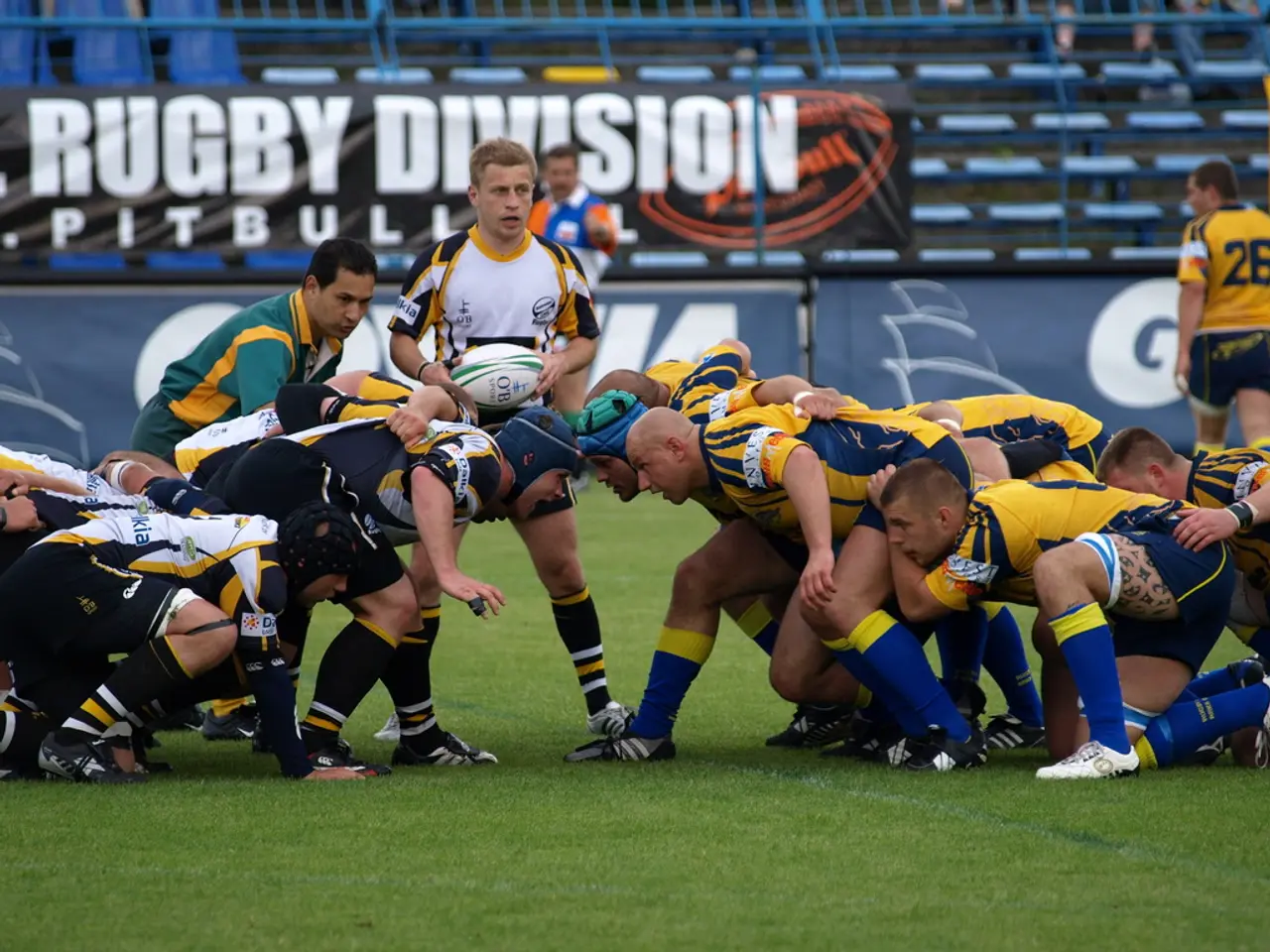Perils of Professional Rugby League and Struggles with Mental Health in the Sporting World
Managing Mental Health in Professional Rugby League
Professional Rugby League is a demanding sport, often leading to feelings of anxiety and pressure for athletes. Despite the physical prowess, speed, strength, and agility on display, the mental fortitude required to excel in the sport is equally important.
Rugby League, a popular global sport known for its fast-paced gameplay and physical demand, places significant pressure on players. This pressure comes from various sources, including expectations from coaches, teammates, and fans. The fear of judgment can lead to isolation, and when players don't talk about their feelings, they may resort to unhealthy coping strategies.
Efforts to destigmatize mental health issues in sports are crucial, and organizations now recognize the importance of sports psychology. Sports psychology plays an essential role in addressing mental health issues in athletes by providing coping strategies and emotional support.
Effective coping strategies for professional Rugby League players include cognitive behavioral therapy (CBT), performance psychology techniques, positive coping strategies such as exercise, and communication within the team environment.
Cognitive Behavioral Therapy (CBT) helps players set goals, stay focused, regulate stress responses, and develop leadership skills. CBT also aids in identifying and changing unhelpful thought patterns, which supports managing anxiety, depression, and stress common in athletes.
Performance Psychology techniques such as visualization, goal setting, mindfulness, positive self-talk, and relaxation are effective in helping players stay calm under pressure, maintain confidence, and control their emotional state during competition.
Adaptive Emotional Appraisal involves viewing emotions like anxiety as facilitators rather than hindrances to performance. Athletes who adopt this mindset tend to have better adaptive responses to competition stress.
Exercise is a widely used positive coping tool that helps relieve stress and maintain mental well-being. In a survey, 38% of athletes specifically cited exercise for stress relief.
Team Environment and Communication are essential for mental health. Maintaining open communication within the team and understanding the shared challenges of elite rugby supports mental health. Speaking openly about mental health and stress is recognized as important by 78% of players in a related project.
Mental Rehearsal involves mentally rehearsing successful performances and interactions with coaches, building confidence and reducing anxiety related to external expectations.
The culture around Rugby League sometimes discourages openness about mental health struggles, with stigma around seeking support remaining a challenge. Studies indicate that around 33% of athletes report feeling overwhelming anxiety, with only a small percentage seeking help.
Financial pressures weigh heavily on many athletes, with salaries varying significantly based on performance and popularity. Media coverage plays a critical role in how athletes are perceived, magnifying both achievements and mistakes.
Many teams now provide resources aimed at developing resilience among athletes, with workshops educating players about mental health becoming more common. Integrating sports psychology into training programs is essential for athletes' overall development, helping them improve their coping strategies and mental resilience.
Regular team-building activities can promote camaraderie and understanding, helping players connect emotionally and build a supportive team culture. Having mental health specialists available makes it easier for athletes to seek help, encouraging them to talk more freely about their feelings.
Performance anxiety is a common challenge in professional sports, as the desire to succeed can become overwhelming. The stigma surrounding mental health in professional sports discourages players from seeking help, with stereotypes about emotional vulnerability being a significant factor.
Despite these challenges, with the right support, players can build resilience and thrive both on and off the field. Acknowledging the challenges of mental health in professional sports is the first step toward fostering a healthier environment, with support systems for players needing improvement.
References:
- Mental Health in Sport and Exercise
- Emotion Regulation Strategies in Sport
- Open Dialogue about Mental Health in Rugby League
- Mental Rehearsal in Sport
- Stress Management Strategies in Elite Athletes
- In the arena of Professional Rugby League, cognitive behavioral therapy (CBT) is utilized to aid athletes in setting goals, regulating stress responses, and managing anxiety, depression, and stress – common mental health issues in sports.
- Sports psychology, an integral part of modern sports, offers techniques like performance psychology, adaptive emotional appraisal, exercise, team environment and communication, mental rehearsal, and financial stress management, each playing a role in enhancing athletes' mental health and well-being.




